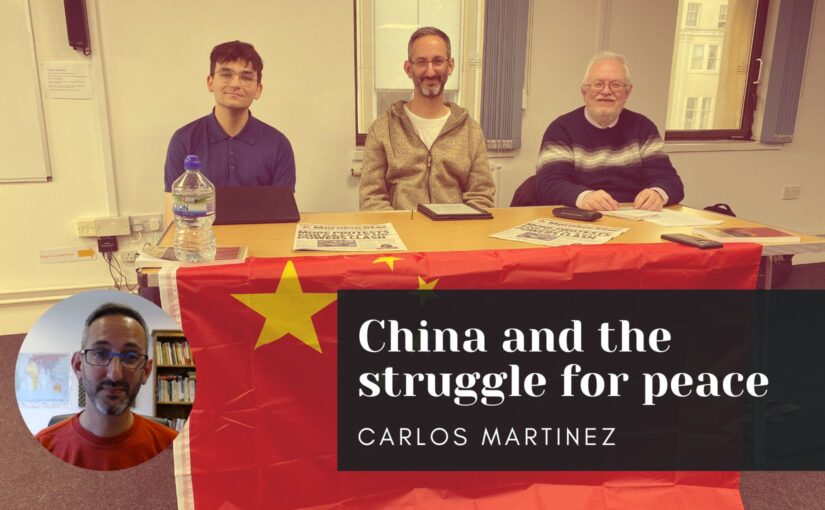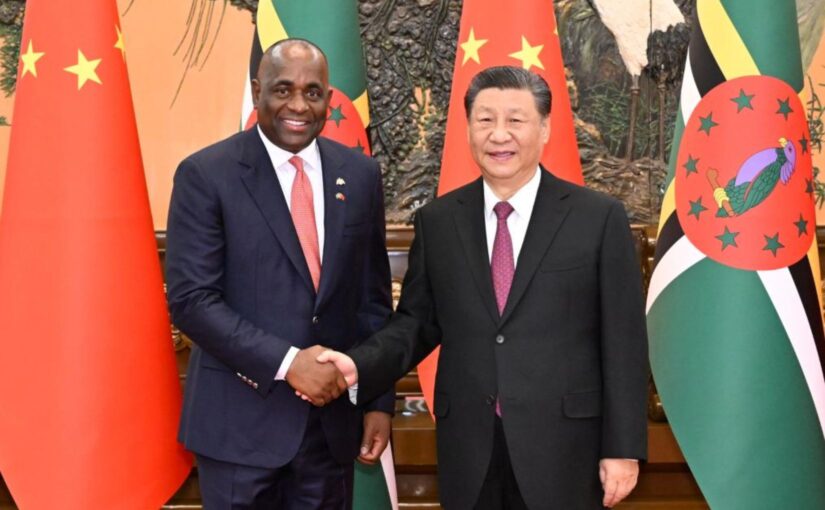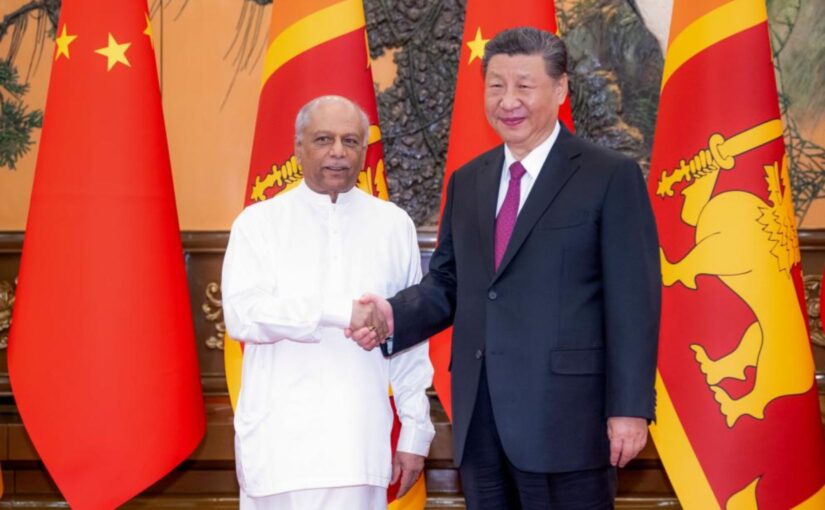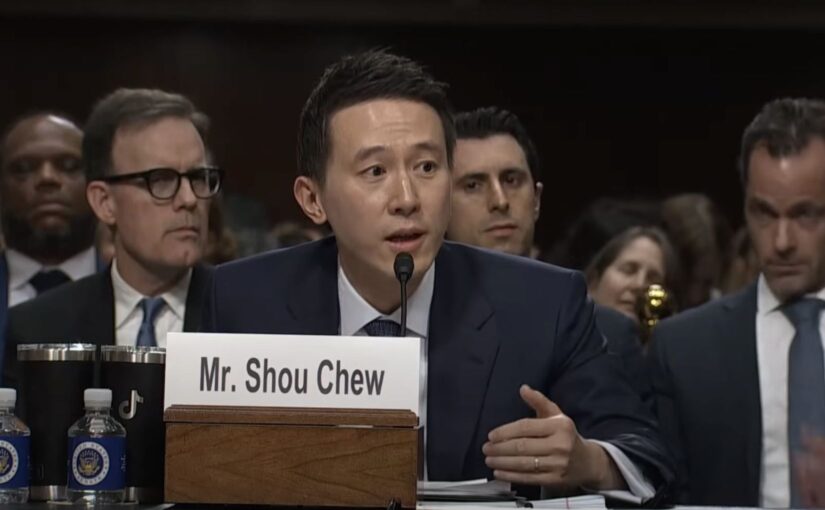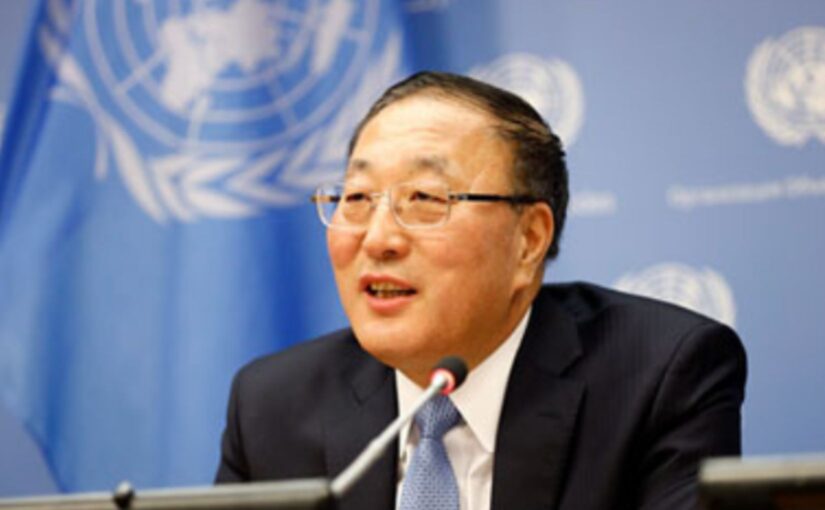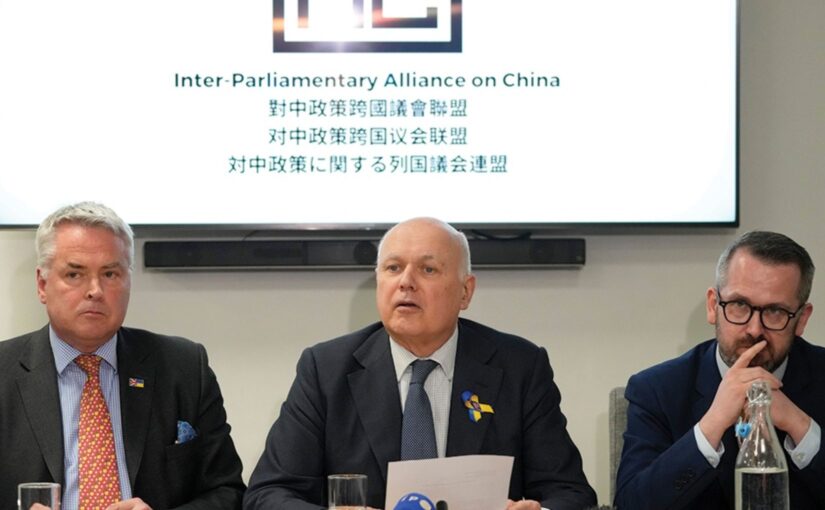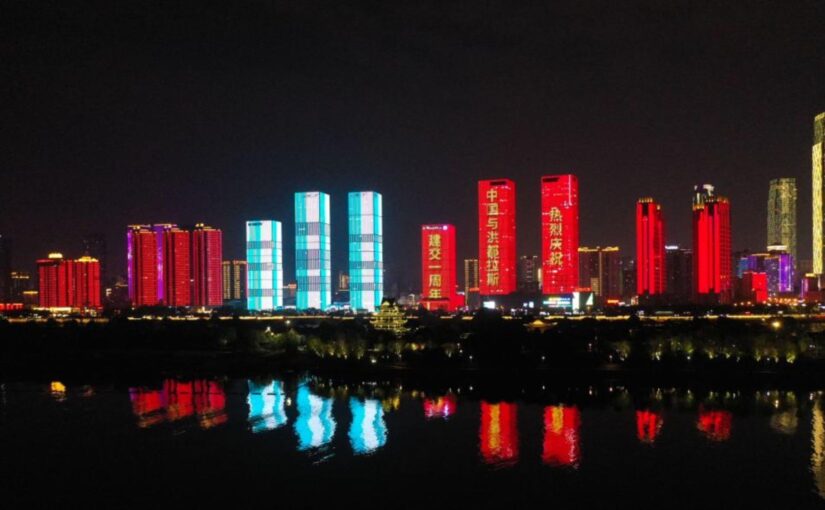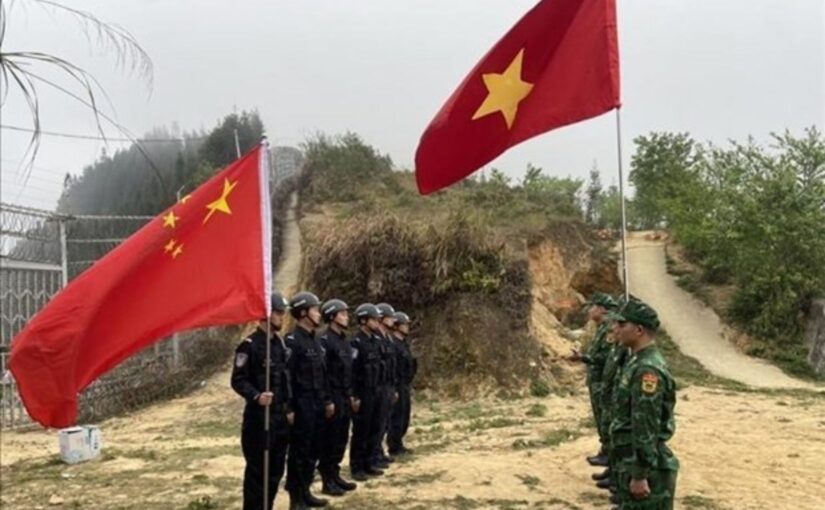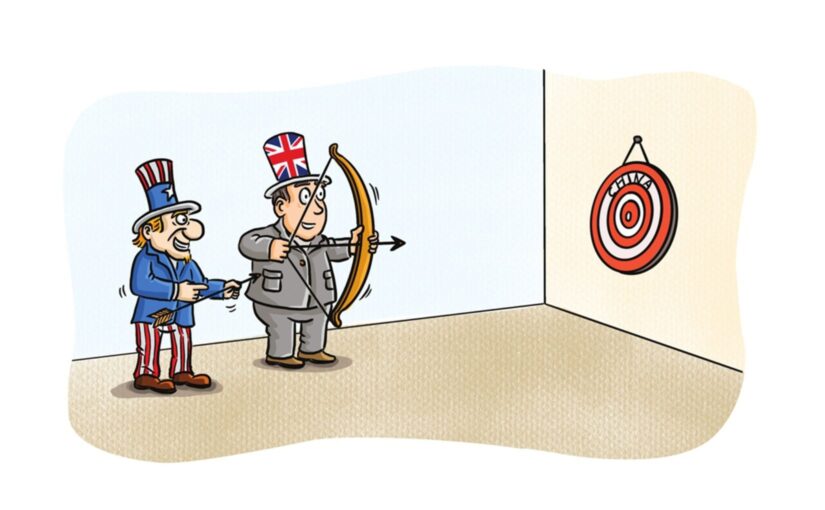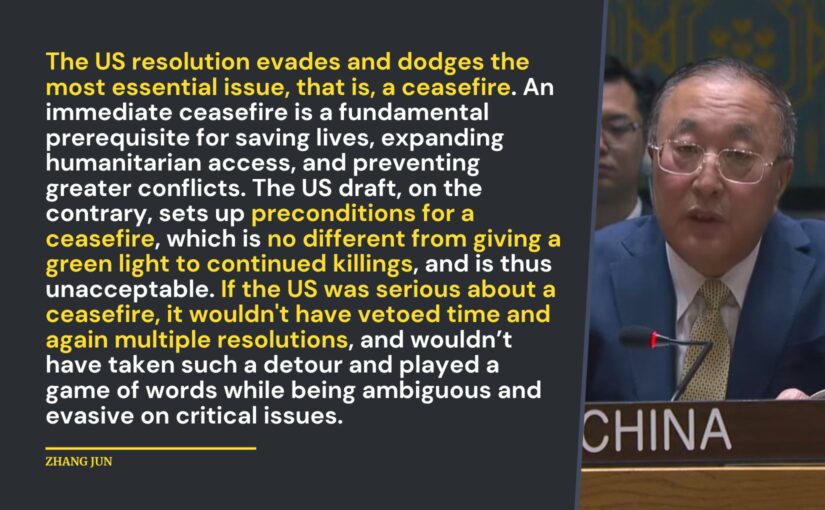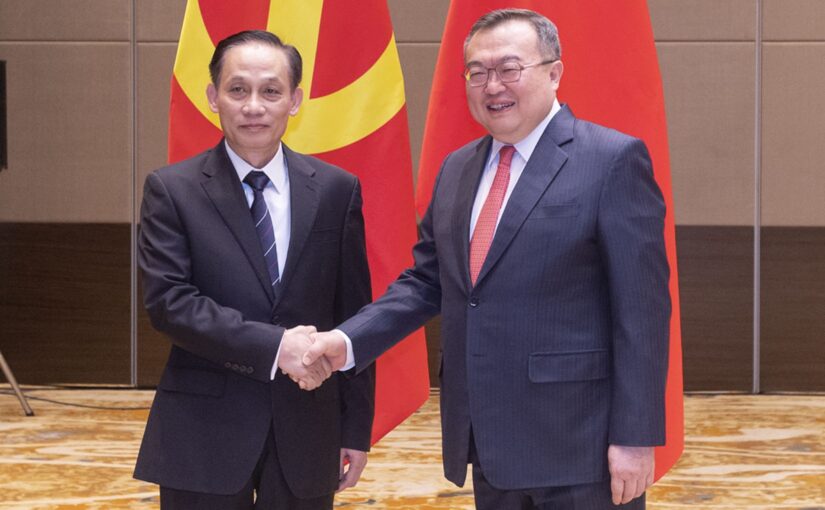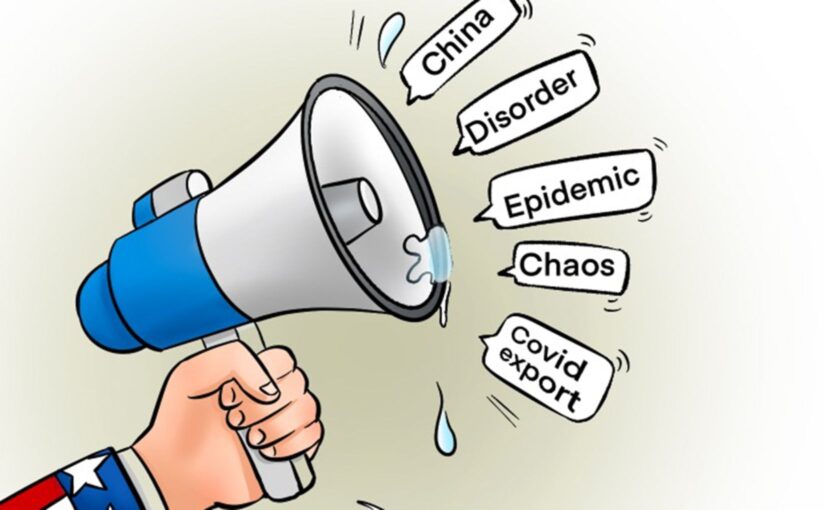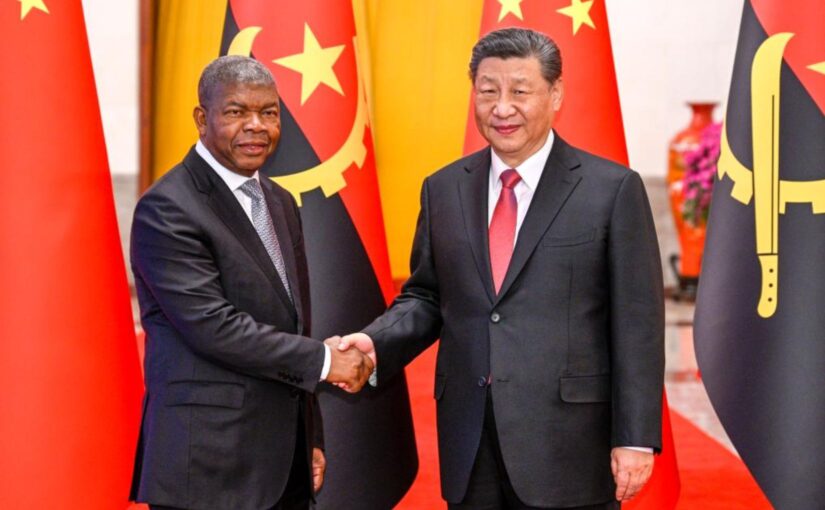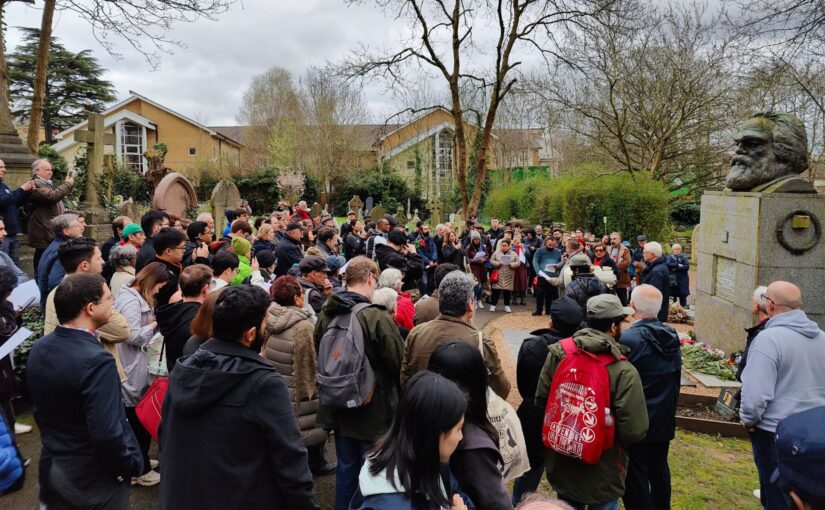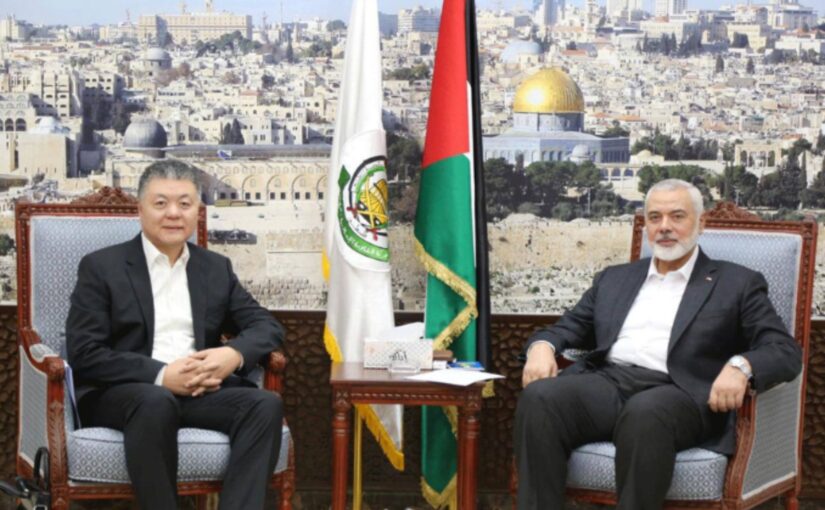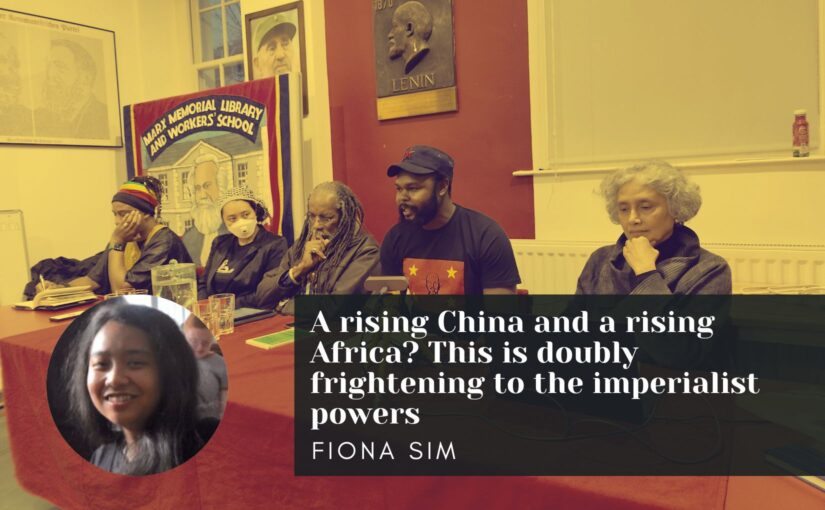Angolan President João Manuel Gonçalves Lourenço paid a state visit to China from 14-17 March at the invitation of his Chinese counterpart, Xi Jinping.
Meeting President Xi on March 15, the two heads of state announced the elevation of bilateral ties to a comprehensive strategic cooperative partnership.
Noting that China and Angola jointly celebrated the 40th anniversary of the establishment of diplomatic relations last year, Xi said relations between the two countries have stood the test of international vicissitudes and benefitted the two peoples.
China-Angola cooperation is South-South cooperation and cooperation between developing countries, which is about mutual help between good friends, reciprocity and win-win cooperation.
In a world that is undergoing both transformation and upheaval, the two sides should continue their traditional friendship, strengthen solidarity and cooperation, firmly support each other, and achieve common development, Xi noted.
China supports Angola in safeguarding its national sovereignty, security, and development interests, exploring a modernisation path suited to its national conditions, and realising national development and revitalisation.
He stressed that cooperation between China and Angola enjoys a sound foundation, large-scale and high complementarity, endowing huge potential and bright prospects for mutually beneficial cooperation. The two sides should advance high-quality Belt and Road cooperation, synergise their development strategies, and improve the quality and effectiveness of their pragmatic cooperation.
China is ready to work with the Angolan side to implement key infrastructure projects, support competent Chinese enterprises to carry out various forms of cooperation in Angola, and help the country advance agricultural modernisation, industrialisation and economic diversification.
China will continue to send medical teams to Angola and implement other projects, provide scholarships to Angolan students, and enhance people-to-people exchanges and friendship.
Noting that at present, the collective rise of developing countries is unstoppable, Xi said the Global South must not be absent from global governance, or development and prosperity.
“China is a reliable friend and sincere partner for African countries in their efforts to safeguard independence and promote development and revitalisation.”
China stands ready to strengthen multilateral coordination with Angola and other African countries to safeguard the common interests of developing countries, jointly advocate an equal and orderly multipolar world and an inclusive economic globalisation that benefits all and promote the building of a community with a shared future for humanity, he added.
Saying that he felt at home when he came to China, President Lourenço said that China was the first country to provide valuable support, both when Angola was reeling from its civil war and when it was struggling with the COVID-19 pandemic, and expressed his heartfelt gratitude.
“China’s support and cooperation have greatly promoted Angola’s infrastructure construction and economic and social development, setting a good example of mutually beneficial cooperation.”
After the talks, the two heads of state jointly witnessed the signing of a number of bilateral cooperation documents regarding the Belt and Road cooperation plan, economy and trade, agriculture, green development and other fields.
The two sides also issued a joint statement on the establishment of a comprehensive strategic cooperative partnership between the People’s Republic of China and the Republic of Angola.
Reflecting the high degree of political unity and close friendship and mutual understanding between the two countries, the statement is broken into sections that deal with working together to build a community with a shared future for humanity, deepening high quality Belt and Road Cooperation, and implementing the three global initiatives on development, security and civilisation.
It notes that: “The two heads of state believe that since the establishment of diplomatic relations between China and Angola in 1983, the friendship between the two countries has withstood the test of time and has endured for the benefit of the two peoples.
“In order to further consolidate political mutual trust and deepen and expand practical cooperation in various fields, the two heads of state decided to upgrade their bilateral relations to a comprehensive strategic cooperative partnership.”
On the question of building a community with a shared future for humanity, the two sides are willing to work together and to build an open, inclusive, clean and beautiful world featuring lasting peace, universal security and common prosperity.
They agreed that in view of a series of major issues and challenges facing the world today, all parties should advocate an equal and orderly multipolar world and economic globalisation that benefits all.
China reiterates its firm support for the Angolan people to independently choose a development path suited to their national conditions and for Angola to safeguard its national independence, sovereignty, security and interests. The Angolan side reaffirmed its firm adherence to the one-China principle, recognised that the Government of the People’s Republic of China is the sole legitimate government representing the whole of China, that Taiwan is an inalienable part of China’s territory, and firmly supports all China’s efforts to achieve national reunification and the principle of non-interference in internal affairs.
The two sides unanimously agreed that all countries, big or small, are equal, no matter what stage of development they are in, and that hegemonism and power politics should be resolutely opposed.
They reaffirmed their support for the authority of the United Nations and agreed on the need to reform the UN and its subsidiary bodies, especially the Security Council, to make them more responsive to the current situation, to expand the participation of developing countries, and to expand Africa’s representation and voice in the Security Council.
The two sides agreed that climate change is a common challenge facing all humanity and requires the joint efforts of the international community to address it. Developed countries bear a historical responsibility for climate change and should take the lead in undertaking the obligation to reduce emissions substantially, and earnestly fulfil their commitments to provide financial, technological and capacity-building support to developing countries.
On Belt and Road cooperation, the two sides will establish a strategic partnership for green development, strengthen cooperation in environmental protection, climate change response, green economy, risk emergency mechanism construction, etc., expand mutually beneficial cooperation in renewable energy such as photovoltaic and wind energy, electric vehicles and other related industries, and promote energy transition and ensure energy security.
China encourages its enterprises to participate in investment projects that support the upgrading of the Angolan industrial chain and enhance the country’s capacity for independent development.
On the Global Development Initiative, China welcomes Angola’s formal entry into the Group of Friends of the Global Development Initiative (GDI) and the two sides will promote practical cooperation in various fields under the framework of the GDI.
The two sides agreed to establish an investment cooperation working group mechanism to promote cooperation in the fields of digital economy, green development and blue economy.
Reflecting the increasing international moves by developing countries to promote dedollarisation, China and Angola agreed to encourage more use of local currencies in trade and investment and to facilitate enterprises of the two countries in reducing exchange costs. The two sides will also create a favourable policy environment for promoting local currency settlement.
On the Global Security Inititiative (GSI), Angola appreciates China’s positive role in promoting a political settlement of the Ukraine crisis and the Palestinian issue. China appreciates President Lourenço’s active efforts to promote peace talks on international and regional hotspot issues such as the Democratic Republic of the Congo (DRC) issue.
And regarding the Global Civilisation Initiative (GCI), the two sides will strengthen cooperation in the field of health. China will continue to support the development of Angola’s public health system and continue to send medical teams to Angola. Angola thanked China for its continuous support to Angola in the field of health, especially during the pandemic.
In conclusion the statement says that: “The two sides agreed that the complete success of President Lourenço’s visit to China marks a new stage of development in China-Angola relations and is of great significance to promoting the building of a China-Angola community with a shared future. President Lourenço expressed his heartfelt thanks to President Xi Jinping and the Chinese government and people for the warm and friendly reception they accorded during the visit, and invited President Xi Jinping to visit Angola at his convenience.”
Also on March 15, Chinese Premier Li Qiang met with President Lourenço and called for deepened political mutual trust and mutually beneficial cooperation between their two countries.
Noting that China and Angola enjoy a profound traditional friendship and are good brothers and partners who trust each other, Li said that in recent years, under the strategic guidance of the two countries’ presidents, the two sides have adhered to the principles of sincerity, friendship, equality and mutual benefit, achieved fruitful results in cooperation in various fields, and continuously upgraded the level of strategic partnership.
Lourenço said that since the establishment of diplomatic ties 41 years ago, bilateral relations have been strengthened, with huge potential for cooperation. Angola appreciates China’s precious support when his country was in the most difficult period, helping Angola to achieve rapid economic and social development, and to cope with the COVID-19 pandemic.
The same day, Chairman of the Standing Committee of the National People’s Congress (NPC) Zhao Leji also met with President Lourenço.
Zhao Leji said, China and Angola are good brothers and good partners with sincerity, real results, amity and good faith. Exchanges and cooperation between legislative bodies are important channels to enhance mutual understanding and trust between the two peoples. The NPC of China is willing to work with the National Assembly of Angola to strengthen exchanges between high-level legislative officials, special committees, bilateral friendship groups, and parliamentarians to provide legal guarantee for mutually beneficial cooperation between the two countries.
In a background article to the visit, Xinhua News Agency surveyed a number of key cooperation projects between the two countries. It reported that: “Located 18 km south of Luanda, Angola’s capital, the ‘new city,’ Kilamba stands prominently on the horizon. More than a decade after its completion, this monumental public welfare project, executed by Chinese firms, comprises 700 buildings and 20,000 housing units, providing contemporary living conditions for its 120,000 inhabitants.”
It added that, in 2010, Xi visited Angola, when the two countries announced the establishment of a strategic partnership. Xi personally inspected the project, spending half a day there, inspiring builders from China and Angola, it noted, adding: “Rising from once barren land, the new city is a testament to the accelerated cooperation between the two nations.”
Drummond Mafuta, president of the Board of Directors of Edicoes Novembro, one of Angola’s largest media groups, commented that when the Angolan civil war ended and the country needed reconstruction, China was the first to extend a helping hand. Friendship with China “is and will always be marked in the history of Angola’s reconstruction.”
Tiago Quissua Armando, a scholar at Angola’s Venancio de Moura Diplomacy Institute, saw the outcomes of the leaders’ talks as addressing vital issues for Angola, such as economic diversification, industrial investment and agricultural modernisation.
“President Lourenço’s visit also includes a trip to Shandong, a Chinese province with significant experience in the agricultural sector. Angola can benefit from this experience to enhance its local industry,” he noted.
Last year, Shandong province signed a friendly cooperation agreement with Bengo Province of Angola, committing to strengthen cooperation in agriculture, economy, trade and vocational education.
Xinhua also reported that the inauguration ceremony of the Chinese-donated Integrated Centre for Technological Training took place in Huambo City, Angola, on January 12. The 20,000-square-meter centre has 30 laboratories and six workshops covering robotics, mechanical processing, computer science and automotive repair. In its first phase, it plans to train 2,400 people annually.
Secretary of State for Labour and Social Security of Angola Pedro Filipe said that in recent years, vocational training and talent cultivation have become critical areas of cooperation between Angola and China.
In a separate interview with Xinhua, Rui Miguens de Oliveira, Angola’s minister of industry and commerce, speaking of Angola’s industrialisation process, expressed gratitude for China’s strong support in the post-war rebuilding and construction of new infrastructure.
The minister emphasised that the participation and presence of Chinese companies and financial resources were fundamental for the initial recovery of destroyed infrastructure, such as bridges, roads, energy transmission lines and water supply systems. “All of these are infrastructures necessary for general economic and social development, but particularly essential for our industry,” he said.
Since China and Angola established diplomatic relations 41 years ago, Angola has emerged as China’s second-largest trading partner in Africa, with bilateral trade reaching 23 billion US dollars in 2023. Chinese companies have rebuilt or constructed anew 2,800 km of railways, 20,000 km of roads, over 100,000 social housing units, more than 100 schools, and more than 50 hospitals in the southern African nation.
Reporting on the visit, the Reuters news agency noted that, last December, China and Angola signed an investment protection agreement, while Angolan firms from December 25 2023 have had tariff-free access to China’s massive consumer market across 98% of goods under a separate agreement.
Chinese firms have invested close to $12 billion in Angola since it joined China’s Belt and Road Initiative in 2014, data from the American Enterprise Institute think tank shows.
The South China Morning Post reported that, “Dominik Kopinski, an associate professor in the Institute of Economics at the University of Wroclaw and senior adviser at the Polish Economic Institute, said Lourenço’s visit to China was part of Angola’s efforts to diversify and cultivate links with a wide range of partners.
“‘Those who thought the recent recalibration of Angola’s foreign policy meant ditching China and embracing the West will feel disappointed,’ Kopinski said.
“Lourenço’s four-day state visit included talks with executives of major Chinese companies, including China Gezhouba Group Corporation, which is building the Caculo Cabaca hydroelectric plant in Angola’s Cuanza Norte province, and Hebei Huatong Cable Group, which is building an aluminium production factory in Angola.
“In a meeting with Chinese Premier Li Qiang, Lourenço sought financing for a refinery in the port city of Lobito, a petrochemical plant and a military air force base.
“‘When we were in urgent need of large financial resources for national reconstruction, China was the only country in the world that truly came to our aid to rebuild the main infrastructure and build new [projects] that were equally important for the economic and social development of Angola,” he said.
The following articles were originally published by the Xinhua News Agency, People’s Daily, and on the website of the Chinese Foreign Ministry. The Joint Statement between China and Angola was published in Chinese by People’s Daily. It has been machine translated and lightly edited by us.
